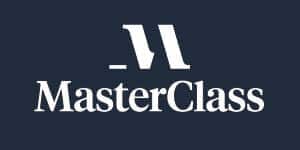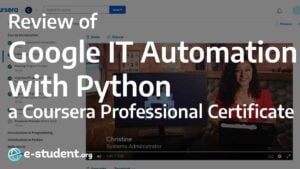Noam Chomsky, a towering figure in linguistics, philosophy, and political theory, is renowned for his groundbreaking work across various academic disciplines. At first, I hesitated to tackle his MasterClass – a venture into the mind of an intellectual heavyweight. However, given the current relevance of what the course promised to teach – “Independent Thinking and Media’s Invisible Powers” – made the course irresistible to me.
Our modern age is flooded with media, and how it influences us is not always clear. In this review, we’ll dive into the course’s content, from Chomsky’s insights on new media and “manufacturing consent” to the imperative of turning truth into activism. Moreover, we’ll explore how Chomsky’s linguistic expertise unveils the intricate link between language and power. We’ll look into how well it does in fostering critical thinking and providing takeaways for navigating today’s information-saturated world.
Table of Contents
About Noam Chomsky

Avram Noam Chomsky, holding the distinguished title of laureate professor of linguistics at the University of Arizona and institute professor emeritus at the Massachusetts Institute of Technology (MIT), is best known for his profound influence on linguistics, philosophy of language, and political science.
Chomsky’s list of achievements is extensive, encompassing over 150 books and countless articles, making him one of the most cited scholars ever. He is most prominently known for his pioneering work in linguistics, particularly his development of the transformational-generative grammar theory and the concept of universal grammar, which has redefined the study of language acquisition and usage.
His many accolades include the prestigious Kyoto Prize in Basic Sciences, the American Psychological Association Award for Distinguished Contributions to Psychology, and the Benjamin Franklin Medal in Computer and Cognitive Sciences, to name a few. More recently, he was awarded the U.S. Peace Prize and the Sydney Peace Prize in 2011 and the Seán MacBride Peace Prize in 2015.
What elevates Chomsky to an iconic status is his steadfast dedication to challenging established norms and advocating for independent thinking. His scrutiny of media, power structures, and the political landscape offers a thought-provoking perspective.
Inside Noam Chomsky’s MasterClass
With 5 lessons to explore, Noam Chomsky’s MasterClass spans approximately 45 minutes in total length, among the shortest of the courses on the platform, with individual lessons varying from 4 – 13 minutes each.
The course is structured into four main sections:
- Information and misinformation in new media
- The invisible control of media
- Truth into activism
- Linguistics and humanity
Now let’s take a look at what the Noam Chomsky MasterClass has to offer.
Information and misinformation in new media

In this lesson, Noam Chomsky is interviewed by Jules Terpak and shares some thoughts on media consumption. He points out the importance of assessing the credibility of news sources, highlighting the shift from objective reporting to opinion-based content, notably observed in the mainstream legacy media and exaggerated in social media. Local media’s decline has also limited the variety of perspectives available.
Chomsky warns about the pitfalls of obtaining news through platforms like Facebook and other social media, which are not news organizations and where filtered (mis)information can distort one’s understanding of the world. He stresses the dangers of echo chambers, which reinforce existing views and polarize society. Furthermore, Chomsky cautions against soundbites and short-form media, which oversimplify complex issues, hindering a profound understanding of how things work or what’s happening in the world.
These points should not be news to anyone but underline the significance of media literacy, critical thinking, and the need for diverse information sources.
The invisible control of media
In his book Manufacturing Consent, Noam Chomsky showed how he believed that the public was manipulated by the media. In this lesson, he gives an overview of his main ideas on the topic.

Five filters drive this manipulation:
- Ownership: Reveals that media outlets are often controlled by corporations with their interests
- Advertising: Commercial media’s reliance on advertising can compromise its independence
- Sourcing: Powerful sources, like government and business, influence media content
- Flak: Represents the backlash from those who disapprove of media content
- Ideology: Media can reinforce society’s dominant ideology, serving those in power
Chomsky argues these filters collectively engineer a media landscape that manufactures consent for the benefit of elites and powerful institutions. Understanding these mechanisms is crucial for anyone seeking to comprehend the intricacies of media control and its implications for society.
Truth into activism

For Chomsky, teachings go beyond analysis; they champion the idea of transforming truth into action. His message is that understanding media manipulation and societal injustices is just the beginning. He urges individuals to use their knowledge as a catalyst for change.
In fact, Chomsky believes that informed citizens have the power to challenge the status quo and address inequalities. The essence of his message is clear: knowledge alone is insufficient; it must drive action.
By the end of this lesson, you’ll have some awareness of media dynamics and power structures and how to translate them into activism. It serves as a respectful call to action, encouraging learners to harness their understanding and turn it into a positive force for change.
Linguistics and humanity

The Chomskyan linguistics proposes that language is innate to humans. He asserts the existence of a universal grammar hardwired into the human brain, consisting of a set of rules and structures forming the foundation of all languages.
As Chomsky sees it, “we can enable others, who have access to our minds, to know their inner workings.” This challenges the conventional idea, or the behaviorist view, which suggests that language acquisition is solely a product of environmental exposure.
My experience of Noam Chomsky’s MasterClass
Overall, I found Noam Chomsky’s MasterClass a useful experience. If you haven’t been exposed to his insights on information, media, truth, activism, language, and humanity, the course provides concise versions of Chomsky’s theories.
Personally, I perceived a paradox within Chomsky’s MasterClass. On the one hand, he warns about the dangers of misinformation and the oversimplification of soundbites, emphasizing the need to diversify information sources for a better understanding of the world. On the other hand, Chomsky’s MasterClass is itself presented in a short-form style, raising questions about whether he yielded to the power dynamics of MasterClass and how they prefer to format their online courses or if it was his own choice to deliver his content in such a condensed format. What surprises me is that it’s even shorter than any other MasterClass I have taken.
What I liked about the Noam Chomsky MasterClass
Learn from an iconic intellectual
Noam Chomsky is one of the most cited professors of all time. That, by itself, says a lot. But it’s his incredible contributions in various disciplines that earn him the iconic status. Chomsky’s vast knowledge and insights into linguistics, media, and activism provide an invaluable learning experience for those interested in these subjects. It’s a special opportunity to gain insights from someone who has been researching these topics for most of his career.
Relevant and concise approach to teaching
The content of Chomsky’s MasterClass is thoughtfully curated, focusing on essential concepts and avoiding unnecessary complexity. It’s presented as a dialogue between Chomsky and an interlocuter, which showcases his ability to distill complex topics into understandable and relevant lessons on the go. These ensure that learners can grasp the core ideas without feeling overwhelmed.
Bite-sized lessons for better retention
The short duration offers a series of bite-sized lessons, which are effective for knowledge retention. These short segments allow learners to absorb the material at their own pace and revisit specific topics easily.
Clear and easy-to-follow explanations
Chomsky’s teaching style is characterized by clear and easy-to-follow explanations. He breaks down intricate subjects in a manner that is accessible to learners with various levels of prior knowledge. This clarity not only facilitates learning but also encourages engagement and application.
Fostering critical thinking
Perhaps the most significant benefit is the course’s capacity to foster critical thinking. Chomsky’s emphasis on questioning, analyzing, and challenging established norms encourages learners to think critically about language, media, truth, and activism. This aspect of the MasterClass equips students with valuable skills that extend beyond the course, allowing them to approach various aspects of life with a more critical and discerning mindset.
What could be improved
Short course duration
The entire course can be completed in less than an hour. Some might consider that to be the same course length as a single class in university. However, the short duration of the course can definitely be improved. Given the breadth of Chomsky’s expertise, learners will find themselves craving more in-depth exploration of the topics covered.
Teaching style not suitable for all types of learners
While Chomsky’s teaching style, particularly in his MasterClass, might be effective for some, it does not cater to all types of learners. Some individuals might benefit from a more interactive, visually engaging, or even a conventional monologue-based course.
Lack of a structured learning path
A more structured learning path would make the learning experience better. While the content is rich, it could benefit from a clearer roadmap, guiding students through a logical progression of topics. A structured path can help learners better grasp the interconnections between different concepts, such as how language plays a crucial role in disseminating information, media, and even activism.
Lacks hands-on exercises
One notable area for improvement is the absence of practical hands-on exercises. Practical activities related to the course content could offer a more interactive and immersive learning experience. Hands-on exercises would enable students to apply theoretical knowledge to real-world scenarios, reinforcing their understanding and practical skills.
How much does the class cost?
As of recent, MasterClass only offers annual plans, with the most affordable option being $120. You can’t purchase the Noam Chomsky MasterClass individually, so to access it, you must buy the annual subscription. If you’re considering taking only this MasterClass, I would say it’s not worth it. The value of a MasterClass subscription lies in the opportunity to also be able to access the 180+ courses with leading figures in a range of other topics.
Conclusion: Is the Noam Chomsky MasterClass worth it?
In a nutshell, the Noam Chomsky MasterClass is like a sip of wisdom from an intellectual cocktail. It’s a great privilege, given that he was alive during WWII, to still be able to hear from such an iconic scholar. Chomsky’s knack for breaking down complex topics into bite-sized, understandable nuggets – even at his age – is the highlight here. The course feels like watching the most important moments from his sexagenary experience of teaching condensed in one place.
However, it’s not all sunshine and rainbows. The course is as short as a sitcom episode, leaving you yearning for more. This is a net positive if you go on to do some research on the topics Chomsky raises. In any case, Chomsky’s teaching style isn’t for everyone, so a bit more variety in the delivery could make the course even better. And a roadmap or some hands-on exercises would be the icing on the cake.
All things considered, I found it paradoxical that Chomsky would warn against misinformation and oversimplification but delivers his MasterClass just in that way – less information and overly simplified. Still, the course is a must-try for Chomsky enthusiasts. But if you’re anticipating a full course as I did, you might leave the table wanting more.
For a limited time, up to 50% off your subscription.




